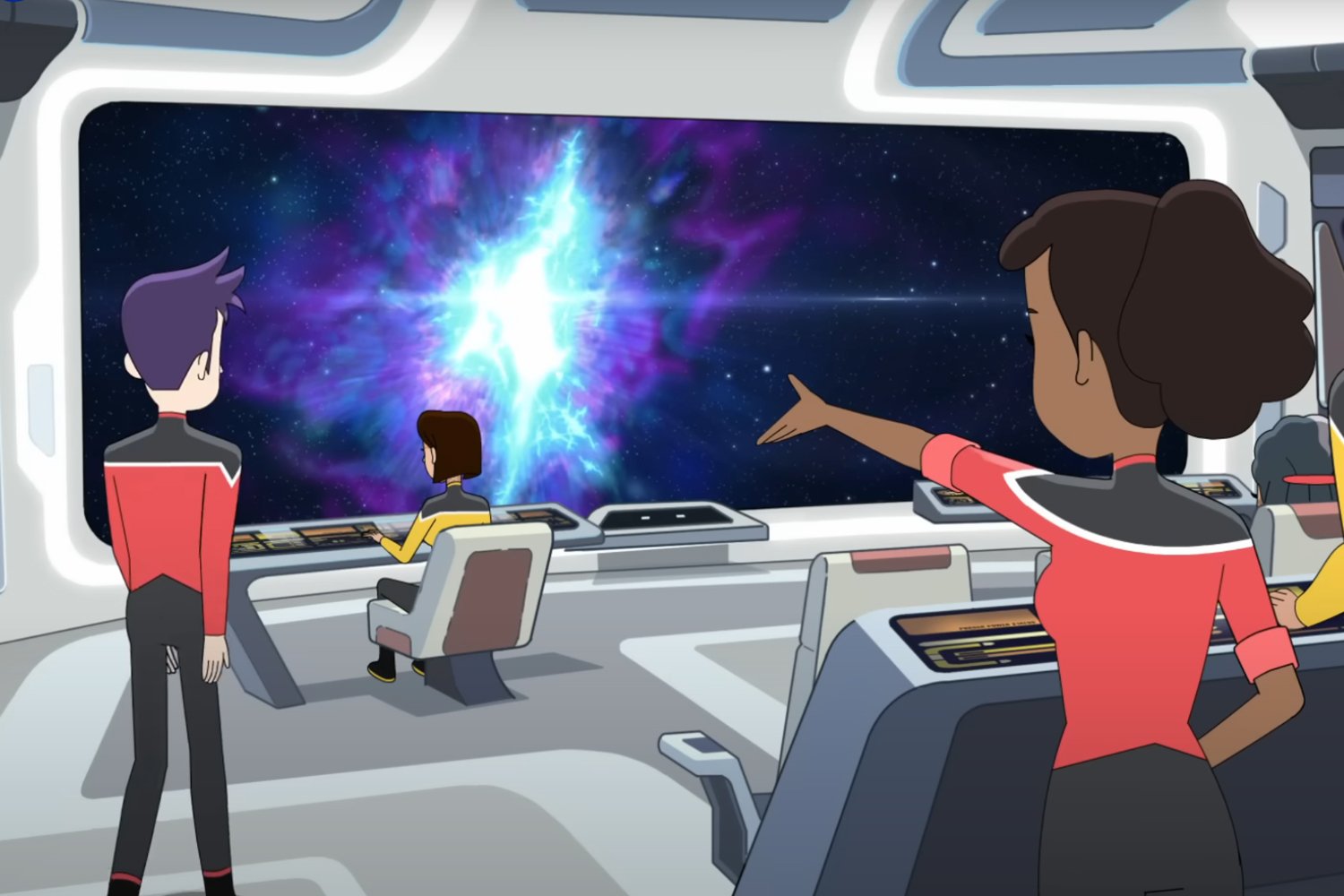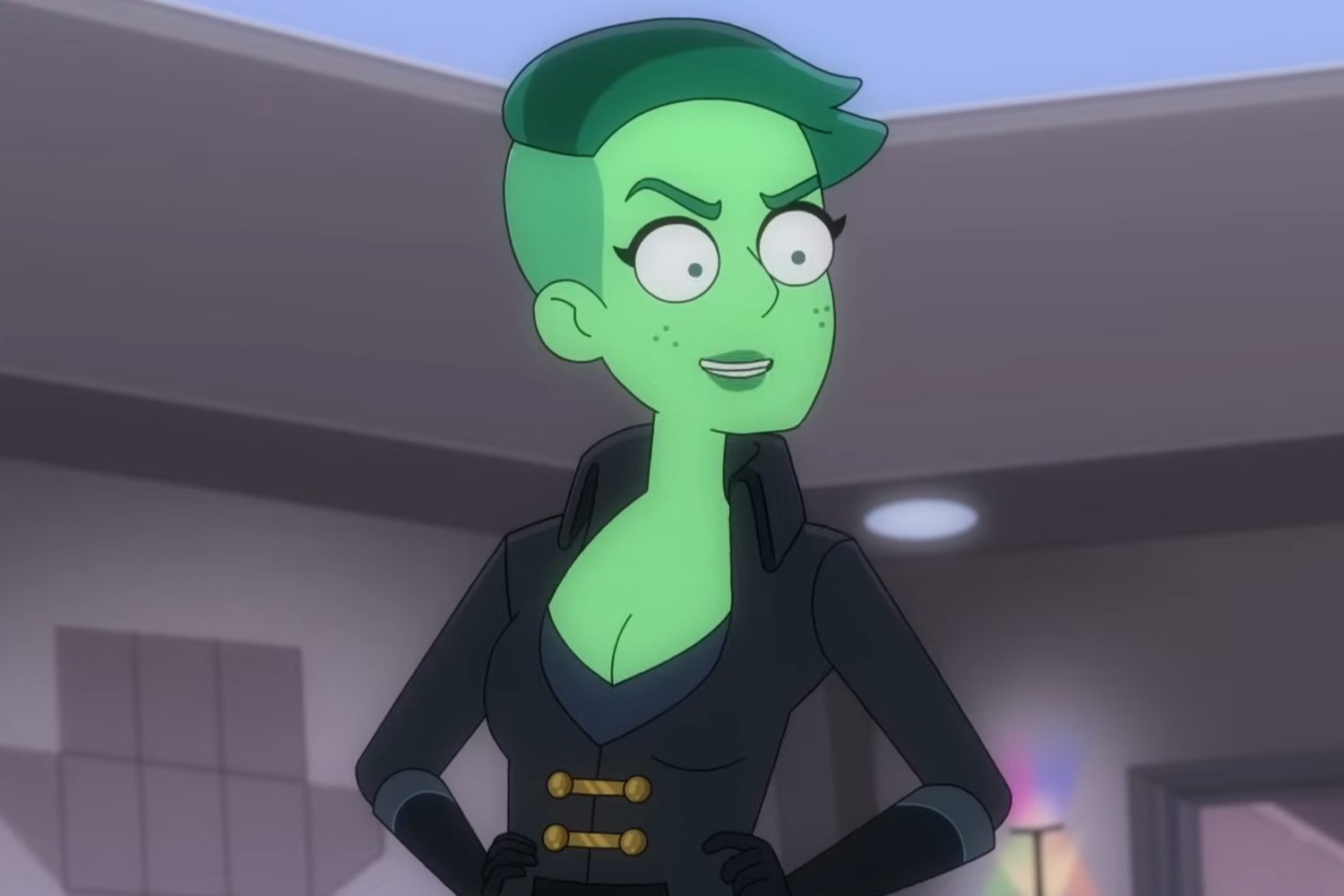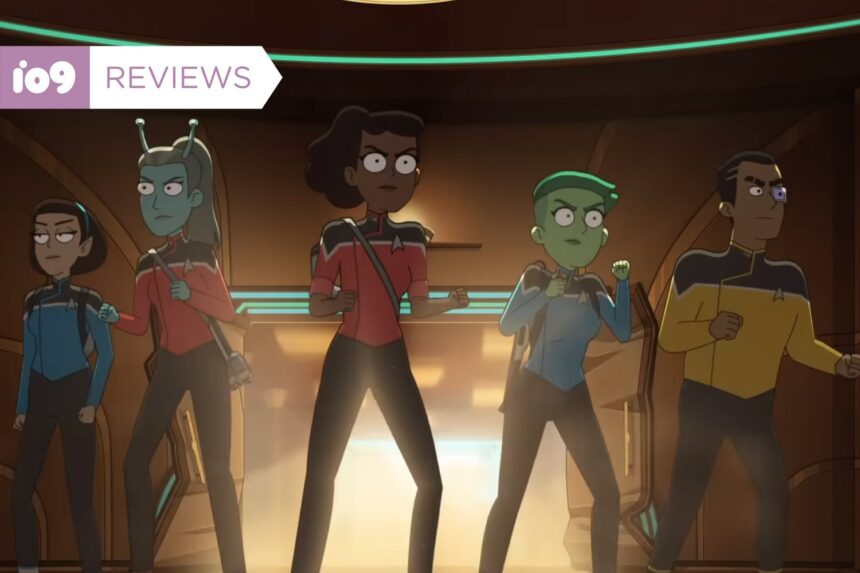The fourth season of Lower Decks was an excellent course-correction from season three’s aimless conclusion, which felt like it set the show up for a bright new future that truly evolved where the series was going. So imagine our surprise—and that of the collective Trek‘s fandom—when we learned that season five would ultimately be the animated show’s last. The good news, at least, is that the series is bowing out with a lot of that renewed strength it gained last season. But it’s also doing so by reminding us of an important lesson for any Starfleet officer: change is reinforced by remembering your fundamentals.
The first five episodes of Lower Decks‘ 10-episode fifth season see Lieutenants Junior Grade Mariner (Tawny Newsome), Boimler (Jack Quaid), Rutherford (Eugene Cordero), and T’Lyn (Gabrielle Ruiz) all handling their lives on the second-lowest rung of the Starfleet career ladder with aplomb. Bolstered by the trust placed in them all last season, it genuinely does feel like a reflection on how far the show has come that these characters still feel familiar in the kinds of zany fun they can get up to in the Star Trek galaxy, while also feeling like they’ve matured in ways that set the stage for them to truly become the next generation of some of Starfleet’s finest.
It’s a delicate balance the show navigates extremely well—Boimler and Mariner still have electric, goofy chemistry, but they also now recognize and understand when to slack off and when to be upstanding examples to the ensigns that now find themselves below them. T’Lyn’s icy Vulcan exterior has slowly warmed as she grows comfortable with her friends, and Rutherford, made a little rudderless by the surprise choice made by his best friend Tendi (Noël Wells) to leave Starfleet and rejoin her Orion family crime syndicate at the end of the last season, has thrown himself into some unhealthy work-life balance. They’re still the same characters, inherently, but they feel mature in the way they handle themselves, and most crucially when to acknowledge that they’ve messed up or have something they still need to work on.
That theme resonates throughout these first five episodes, which take the USS Cerritos on a series of disparate, suitably offbeat adventures as they perform the humdrum duties of clearing up interdimensional “space potholes,” a job that it’s both perfectly Star Trek while also not exactly the most glamorous thing in the world. It lets the show tackle riffs on plenty of great Star Trek ideas, like seeing the aftermath of a society joining the Federation and entering a post-scarcity, post-capitalist existence, to classics like parallel universes and the perils of alien grey goo. It also lets Lower Decks expand its own corners of Star Trek mythology, catching up with characters and locales it’s previously touched upon and expanding on them in fresh and exiting ways.

There’s not a particularly strong season arc humming in the background this time around like there was with season four and the mystery of the vanishing ships—the potholes are about as far as it gets, and even that’s played with a light hand as an excuse for the Cerritos to be going from one end of the galaxy to the other. Instead, the episodes are all linked thematically by an important lesson for our growing heroes: that no matter how far they’ve come across the show’s four seasons, it’s always going to be vital for each of them to actually be open and listen to each other, and communicate their doubts and concerns with not just each other as friends, but with their fellow officers.
This is a concept the series has touched on before of course, and especially considered the power dynamics that exist in a communication gap between senior and junior officers aboard a starship. But revisiting it at this moment in Lower Decks‘ journey, when its characters have made clear signs of growth and maturation, works incredibly well. It doesn’t feel like the series is rehashing thematic ideas; instead, it’s reminding us and its heroes alike that there are lessons they will always have to re-learn as their careers advance, and that re-learning them is as vital to becoming the officers they want to be as doing new things and taking on new responsibilities. It’s a reflection of a show that itself has gone on a similar journey of learning and re-learning, maturing its own sense of being a Star Trek show (while maintaining its affable willingness to poke fun at itself and the franchise) and growing in confidence as its progresses.

Not everything quite works in this re-learning process in the early parts of the season. Lower Decks still has a penchant for setting up a big change for its status quo at the end of a season, only to largely undo it early on in the next, so it’s not a spoiler to say—especially as we’ve seen her in trailers wearing a Starfleet uniform again—that Tendi’s time with her sister and the politics of the Orion syndicates is resolved relatively early on in the season with little in the way of meaningful consequence. It’s a regular annoyance of the series at this point, but at the least here it feels relatively harmless: Tendi still has a part to play in the thematic lessons being applied to her friends back in Starfleet even before she’s re-united with them, so it’s not like she particularly misses out.
But again, that’s a sign of just how far Star Trek: Lower Decks has come across its lifetime. In many ways, it is still the fun, goofy riff on Trek that we fell in love when it first began, but it’s grown and matured since then that even at its weakest, it is still trying to say something earnest and sincere not just about this universe it so admires being a part of, but the characters it has developed in its time on duty. If the back half of the season can pay off on these lessons in maturity, Lower Decks is going out boldly, and with a track record that any Starfleet officer would be proud of.
Star Trek: Lower Decks‘ fifth and final season will begin streaming with a two-episode premiere on Paramount+ next Thursday, October 26.
Want more io9 news? Check out when to expect the latest Marvel, Star Wars, and Star Trek releases, what’s next for the DC Universe on film and TV, and everything you need to know about the future of Doctor Who.
Read the full article here












